
When I was single, I never needed a room of my own. I wrote whenever I wanted, day or night, in my tiny studio apartment, where I lived alone. Drafts of poems and stories and books would be strewn about for days, undisturbed. My clerical job didn’t require me to take work home; I could even write at my desk when business was slow.
My unencumbered writing life changed considerably twenty years ago when I earned a graduate degree and fell in love in the same year. After graduation, my boyfriend—now husband—Jorge and I moved into an apartment together. I soon joined the ranks of adjunct instructors commuting across congested Southern California freeways to teach at community colleges and universities.
My writing suffered.
I used the dinette as an office and stole two or three hours a week to write on our small dining table, when it wasn’t being used for eating, lesson planning, grading papers, paying bills, or other activities. I had difficulty switching from my hectic life into writer mode. My creativity needed to be eased into gear, and I couldn’t escape reminders of the tasks waiting for me to complete—grading, cleaning, and more. I longed for a room of my own where I could shut the door and immerse myself in the world of the piece I was writing. I wanted a room I could decorate to express my eclectic taste and inspire me.
This story is from the {{IssueName}} edition of {{MagazineName}}.
Start your 7-day Magzter GOLD free trial to access thousands of curated premium stories, and 9,000+ magazines and newspapers.
Already a subscriber ? Sign In
This story is from the {{IssueName}} edition of {{MagazineName}}.
Start your 7-day Magzter GOLD free trial to access thousands of curated premium stories, and 9,000+ magazines and newspapers.
Already a subscriber? Sign In

Literary MagNet
When Greg Marshall began writing the essays that would become his memoir, Leg: The Story of a Limb and the Boy Who Grew From It (Abrams Press, June 2023), he wanted to explore growing up in Utah and what he calls \"the oddball occurrences in my oddball family.\" He says, \"I wanted to call the book Long-Term Side Effects of Accutane and pitch it as Six Feet Under meets The Wonder Years.\" But in 2014 he discovered his diagnosis of cerebral palsy, information his family had withheld from him for nearly thirty years, telling him he had \"tight tendons\" in his leg. This revelation shifted the focus of the project, which became an \"investigation into selfhood, uncovering the untold story of my body,\" says Marshall. Irreverent and playful, Leg reckons with disability, illness, queerness, and the process of understanding our families and ourselves.
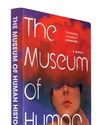
THE MEUSEUM OF HUMAN HISTORY
READING The Museum of Human History felt like listening to a great harmonic hum. After I finished it I found the hum lingering in my ears. Its echo continued for days.
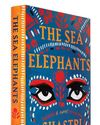
The Sea Elephants
SHASTRI Akella's poised, elegant debut, The Sea Elephants, is a bildungsroman of a young man who joins a street theater group in India after fleeing his father's violent disapproval, the death of his twin sisters, and his mother's unfathomable grief.
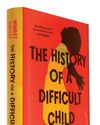
The History of a Difficult Child
MIHRET Sibhat's debut novel begins with God dumping rain on a small Ethiopian town as though. He were mad at somebody.
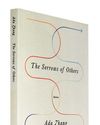
The Sorrows of Others
AS I read each story in Ada Zhang’s brilliant collection, The Sorrows of Others, within the first few paragraphs— sometimes the first few sentences— I felt I understood the characters intimately and profoundly, such that every choice they made, no matter how radical, ill-advised, or baffling to those around them, seemed inevitable and true to me.
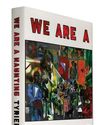
We Are a Haunting
TYRIEK White’s debut novel, We Are a Haunting, strikes me as both a love letter to New York City and a kind of elegy.

RADICAL ATTENTION
IN HER LATEST BOOK, THE LIGHT ROOM: ON ART AND CARE, PUBLISHED BY RIVERHEAD BOOKS IN JULY, KATE ZAMBRENO CELEBRATES THE ETHICAL WORK OF CAREGIVING, THE SMALL JOYS OF ORDINARY LIFE, AND AN ENGAGEMENT WITH THE NATURAL WORLD WITHIN HUMAN SPACES.

The Fine Print
HOW TO READ YOUR BOOK CONTRACT

First
GINA CHUNG'S SEA CHANGE
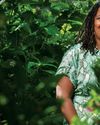
Blooming how she must
WITH ROOTS IN NATURE WRITING, ENVIRONMENTAL JUSTICE, POETRY, AND PHOTOGRAPHY, CAMILLE T. DUNGY'S NEW BOOK, SOIL: THE STORY OF A BLACK MOTHER'S GARDEN, DELVES INTO THE PERSONAL AND POLITICAL ACT OF CULTIVATING AND DIVERSIFYING A GARDEN OF HERBS, VEGETABLES, FLOWERS, AND OTHER PLANTS IN THE PREDOMINANTLY WHITE COMMUNITY OF FORT COLLINS, COLORADO.